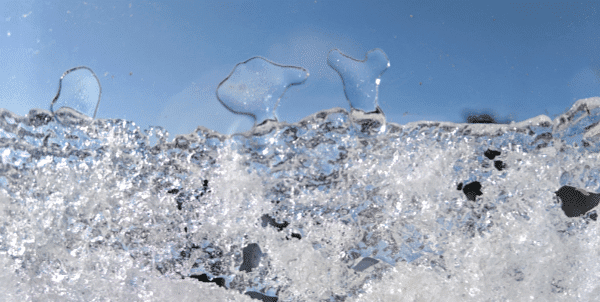Susan Fauman, Ayurvedic clinician, shares some of the wisdom about daily conduct and food that Ayurveda offers to ease our transition into winter.
As the weather gets colder and wetter, the warmth of the body is driven inwards to protect the vital organs. Our digestion usually becomes stronger as the body adjusts to this. The circulation becomes sluggish and the extremities become cold.
In order to stay warm and keep our blood moving, exercise is strongly advised at this time of year. Exercising hard enough to produce sweat on the brow, the armpits and joints and a feeling of dryness in the mouth will help to dispel the heavy dampness that can accumulate in the body and mind during the mid-to-late winter.
Many other practices support healthy circulation. One that feels great is to use a dry bathing-brush. Before you get in the shower, brush the entire surface of your skin toward the heart until you feel tingling all over. This can be done in conjunction with all-over oil application (abhyanga) on days when it is not too rainy.


Because the digestive fire is strong this time of year, we need to eat nourishing and satisfying foods to make sure we don’t lose weight during the winter. Spring will be a much more appropriate and natural time for cleansing and weight loss.
In order to digest all of this nutrient-dense food, we need some support from herbs and spices. Some helpful spices include:
- Cumin seed lightly toasted is a great addition to grains (particularly rice) and root vegetable dishes.
- Hing (Asafoetida) is very strong smelling. It is used to reduce gas in dishes with pulses and legumes. A very small amount of it is needed. Its strong smell dissipates with cooking. Once cooked, it has a pleasant, caramelized onion flavor.
- Ginger can be used dried in the winter, but fresh is still nice. It can be used in just about anything.
- Turmeric is a wonderful medicine. It is warming and very healing.
- Garlic may be used in moderation in the winter. Roasted garlic is less pitta-provoking than sautéed or raw.
- Sage is a great addition to dishes with root vegetables. It is also good for drying excess damp in the body.
- Saffron is a wonderful blood/circulation medicine. It is great in savory or sweet dishes.
- Black pepper is a good digestive aid that doesn’t irritate pitta too much.

